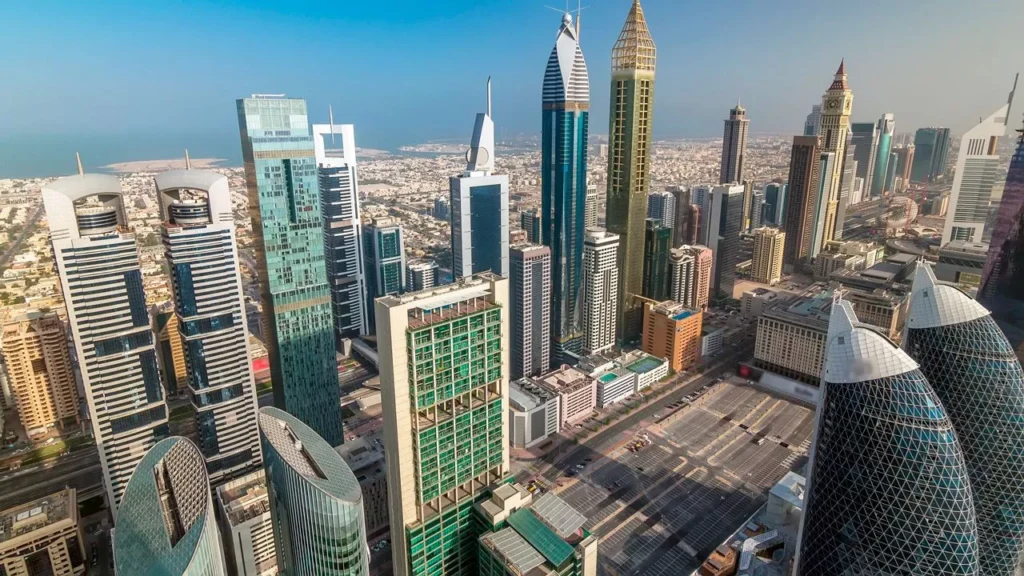The UAE has rolled out a series of real estate regulatory reforms to strengthen investor protection and ensure market stability. These changes aim to make the property sector more transparent, secure, and appealing to both local and international investors. Here’s a comprehensive look at what’s changing and how it could impact the real estate landscape.
Why the Reforms Were Introduced
Over the past decade, the UAE’s property market has seen tremendous growth, attracting millions of investors. However, with rapid growth came challenges, including market speculation, delayed projects, and instances of fraud. To address these concerns, the government has introduced stricter regulations to create a safer and more transparent environment.
These reforms are also part of a broader vision to enhance the UAE’s global reputation as a reliable investment destination. With the property sector contributing significantly to the nation’s GDP, ensuring its long-term stability remains a top priority.

Key Highlights of the New Regulations

- Increased Investor Protection
New regulations ensure stricter oversight of developers and brokers. Developers will need to provide clearer timelines for project completion and maintain financial transparency. Additionally, escrow accounts are now mandatory for all off-plan projects, ensuring funds are used solely for construction purposes.Investors will receive regular progress updates and have the right to request independent audits to confirm financial transparency. - Stricter Licensing and Accountability
Real estate agencies and brokers will undergo enhanced licensing procedures. Continuous monitoring and stringent penalties for misconduct will deter unethical practices. Furthermore, brokers will now be required to participate in ongoing training programs to stay updated on market trends and legal changes. - Dispute Resolution Improvements
A more efficient and transparent dispute resolution system has been introduced. Real estate tribunals will resolve conflicts quickly, offering better protection for both buyers and sellers. The process will involve mediation first, followed by arbitration or court proceedings if necessary. - Foreign Ownership Expansion
The reforms extend foreign ownership rights in certain areas, encouraging more international investment. Freehold zones are expanding, providing greater opportunities for overseas investors. With simplified procedures for property registration and legal support, foreign buyers will find it easier to enter the UAE’s market. - Transparency Through Technology
Digital platforms will now play a crucial role in the market. All property transactions and ownership records will be digitized, ensuring easy access to verified information. Blockchain technology will further enhance transparency and security by providing immutable records. - Developer Accountability
Developers must now secure financial guarantees before starting construction. This ensures they have the necessary funds to complete projects on time. Additionally, buyers will have access to detailed progress reports and timelines.
Impact on Investors and Developers
For investors, these reforms offer greater confidence in the market. The enhanced legal framework minimizes the risk of fraud and ensures that projects are completed on time. Developers, on the other hand, will benefit from increased market credibility, attracting more funding and partnerships.

Real estate brokers and agencies will also see a shift in their operations, with increased accountability and the need for continuous professional development. Compliance will become a critical aspect of their business models.
Long-Term Market Stability
Experts believe these reforms will contribute to long-term market stability. By reducing speculative activities and promoting sustainable growth, the UAE aims to maintain its position as a leading global real estate hub.
Furthermore, increased transparency and security could lead to an influx of international investors, boosting the sector’s overall growth. With greater regulatory oversight, buyers and sellers can engage in property transactions with increased trust and confidence.
What Investors Should Do Next
- Stay Informed: Keep track of the latest regulations and ensure you work with licensed brokers and developers.
- Use Verified Platforms: Rely on government-approved digital platforms to access reliable property information.
- Understand Your Rights: Familiarize yourself with the new legal protections and how they apply to your investments.
- Seek Legal Advice: Consider hiring a legal expert specializing in real estate to guide you through property purchases or investments.
- Diversify Investments: With the expansion of freehold zones and enhanced foreign ownership rights, consider exploring different regions and sectors within the UAE property market.
Future Outlook
Industry leaders anticipate that the UAE’s regulatory overhaul will foster a healthier real estate market in the coming years. Sustainable development, increased foreign direct investment, and a balanced supply-demand environment are all expected outcomes.
Additionally, with the emphasis on digital innovation and blockchain integration, property transactions will become faster, safer, and more transparent. The UAE’s proactive approach to strengthening its real estate sector shows its commitment to maintaining a secure and competitive market.
Whether you’re an investor, developer, or agent, understanding these reforms will help you navigate the evolving landscape effectively. The UAE’s property market remains a beacon of opportunity, backed by a robust regulatory framework designed to protect and empower all stakeholders.
Also read: Inside Abu Dhabi’s AI Revolution: The Future Is Happening Now













